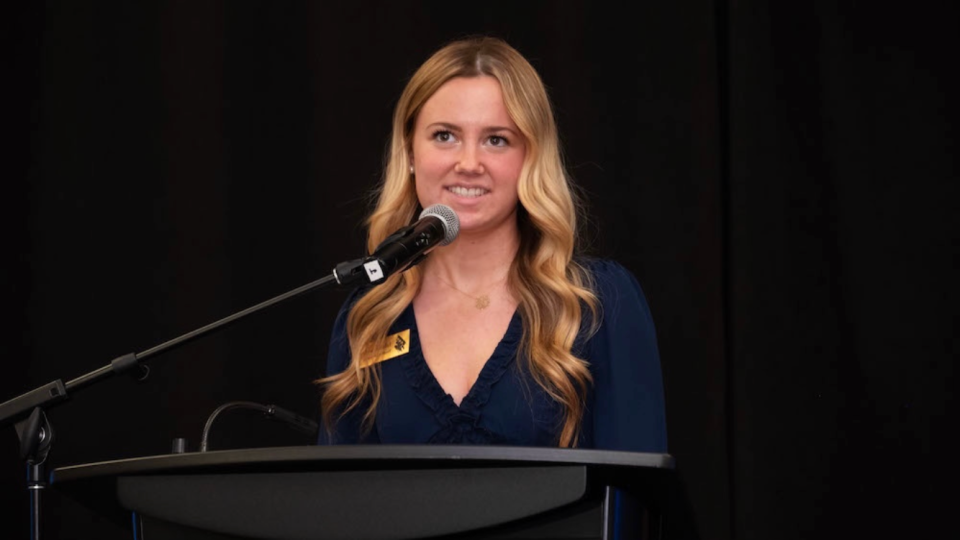Generation ChatGPT: Are we here for it?
We are excited to introduce Tallulah Rector, the newest addition to our team of columnists! Tallulah is a talented young writer with a passion for sharing her unique perspective and experiences with the world. Get ready to be inspired, informed, and entertained by this rising star of the written word!
Thanks for the introduction...nobody! Unfortunately for me, it was nobody who wrote those lovely words. Unless you find a computer to be “somebody.”
This introduction was written by ChatGPT: an AI text-generator developed by Open AI. On openai.com, anyone can type almost any prompt (with the limitations of word count and explicit content) into the chat box and be met with a sentence, paragraph, or full essay that fits their request.
It’s also the subject of the latest gossip around school campuses. Even though I dubbed the AI writer “nobody,” ChatGPT has actually been given many names around my own high school — the names of students who are turning in work written by the AI program.
Yes, students are obviously using this new highly intuitive AI software to their own advantage. They’re using it to cheat -- I know because they told me so.
Local high school students described ChatGPT's myriad uses: From inputting assigned English essay prompts into the software, copy and pasting the results, and submitting them as their own. Students have cited time, laziness, “senioritis,” and just plain curiosity as reasons for using the AI. Some students have used the software to simply get ideas, start brainstorming and see example papers.
Others don’t see the appeal and commented that they find it isn’t fair to those who put real effort into their work to see others succeeding by submitting work that isn’t their own. Unlike copying answers off of websites like Quizlet, copying from ChatGPT is untraceable, as it creates an original answer each time. This make it much easier for students to get away with academic dishonesty.
In the simultaneously competitive and lazy high school world of hypothesizing peers’ class rankings and sneaking vapes around restroom stalls, is ChatGPT really changing anything? The wealthiest have been paying people to write their college admissions essays for them for years, maybe this software is now just allowing cheating to become more accessible in some sort of Robin Hood way. But, rich or poor, all students are feeling the same heat. ChatGPT is just the latest distraction, the latest scapegoat for all the pressures put on students to get into a “good” school and prepare for a “good” future.
Maybe we shouldn’t be asking how we should stop students from cheating. Instead, we should be asking how to stop making students feel like they need to by opening up the conversation about the meaning of education and prioritizing learning over grades. If we taught students that they were worth more than the letters on their transcripts and they learned to value expanding their minds and harnessing their creativity, we could applaud the creation of technological advancement without fearing it because we would have faith in the imagination and innovation of the future.
We don’t have to see ChatGPT as something malicious because it’s not the problem. Maybe we could learn from the students using it to brainstorm and see it as a tool. ChatGPT could be the calculator of the 21st century, just another way for technology to help us learn. And, teachers aren’t unprepared.
When the pandemic hit the country and we went into lockdown in 2020, teachers persevered and found a way to teach despite the difficulties. The world around classrooms will keep changing, and school workers have proven that they know how to handle it. Despite the developments of Google Classroom and district-bought Chromebooks, some teachers have only ever assigned analog, pencil and paper writing assignments to avoid cheating. After hearing about ChatGPT, others may follow suit.
Turns out, after decades of technological advancement in and out of the classroom, teachers think it might be best to stick to the old school way.
But, ChatGPT isn’t just about teachers, students, and grades. It’s changing the conversation of the way we view the importance of writing as a society. Adults and teens alike are using software to think, instead of their own minds. In terms of college admissions, students are losing the one factor that makes them who they are, that makes them human by submitting an essay written by AI. Is it possible that we could allow for writing, for poetry, for novels, for plays, for articles to become a lost art? Personally, I don’t think so. But if you ask other students who are shaping the future, they’re letting robots write it.
Tallulah Rector is a student at Palm Desert High School. Email her at rectorlulu@gmail.com

This article originally appeared on Palm Springs Desert Sun: Generation ChatGPT: Are we here for it?

